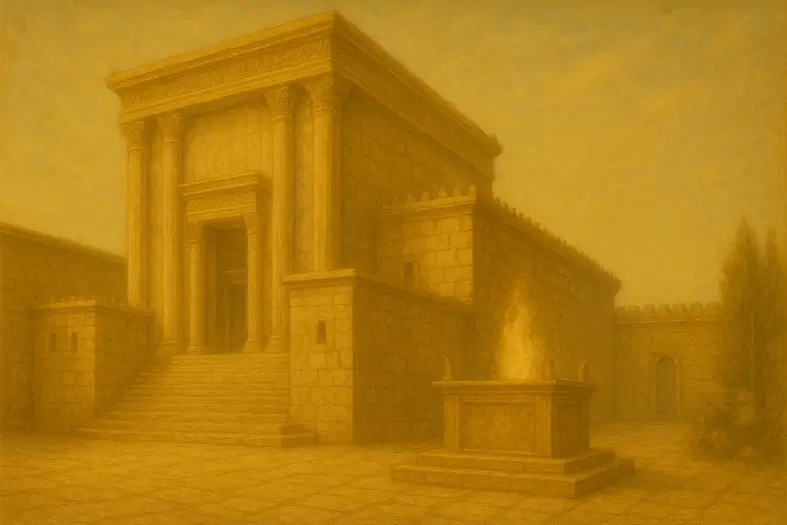


A kohen who immersed from impurity may not serve until after sunset, when his purification is fully complete.
This mitzvah establishes that purification from impurity occurs in two stages: immersion in a mikveh and the passage of sunset (הערב שמש). A kohen who immerses cannot immediately resume Temple service but must wait until nightfall, when his status changes from tevul yom (immersed that day) to fully pure.
Rambam codifies that a tevul yom kohen is still barred from avodah, though his impurity is less severe than before immersion. Sefer HaChinuch explains that this teaches discipline and reinforces the principle that holiness demands patience and complete readiness. Partial purification is insufficient for engaging in Hashem’s service.
The Talmud illustrates cases where kohanim who entered prematurely were disqualified, showing how halachah safeguards the sanctity of the Mikdash. This mitzvah emphasizes that the service must be performed in a state of shalem (wholeness), not halfway measures.
Commentary & Classical Explanation:


Represents the concept of spiritual intentionality, purity, and sanctity—set apart for a higher purpose.
Concerns the Beit HaMikdash, korbanot (offerings), and priestly service.
Signifies awe and reverence toward Hashem—living with awareness of His greatness and presence.
Mitzvot that define and deepen the relationship between a person and their Creator. These include commandments involving belief, prayer, Shabbat, festivals, sacrifices, and personal holiness — expressions of devotion rooted in divine connection.

Dive into mitzvos, prayer, and Torah study—each section curated to help you learn, reflect, and live with intention. New insights are added regularly, creating an evolving space for spiritual growth.

Explore the 613 mitzvos and uncover the meaning behind each one. Discover practical ways to integrate them into your daily life with insights, sources, and guided reflection.

Learn the structure, depth, and spiritual intent behind Jewish prayer. Dive into morning blessings, Shema, Amidah, and more—with tools to enrich your daily connection.

Each week’s parsha offers timeless wisdom and modern relevance. Explore summaries, key themes, and mitzvah connections to deepen your understanding of the Torah cycle.